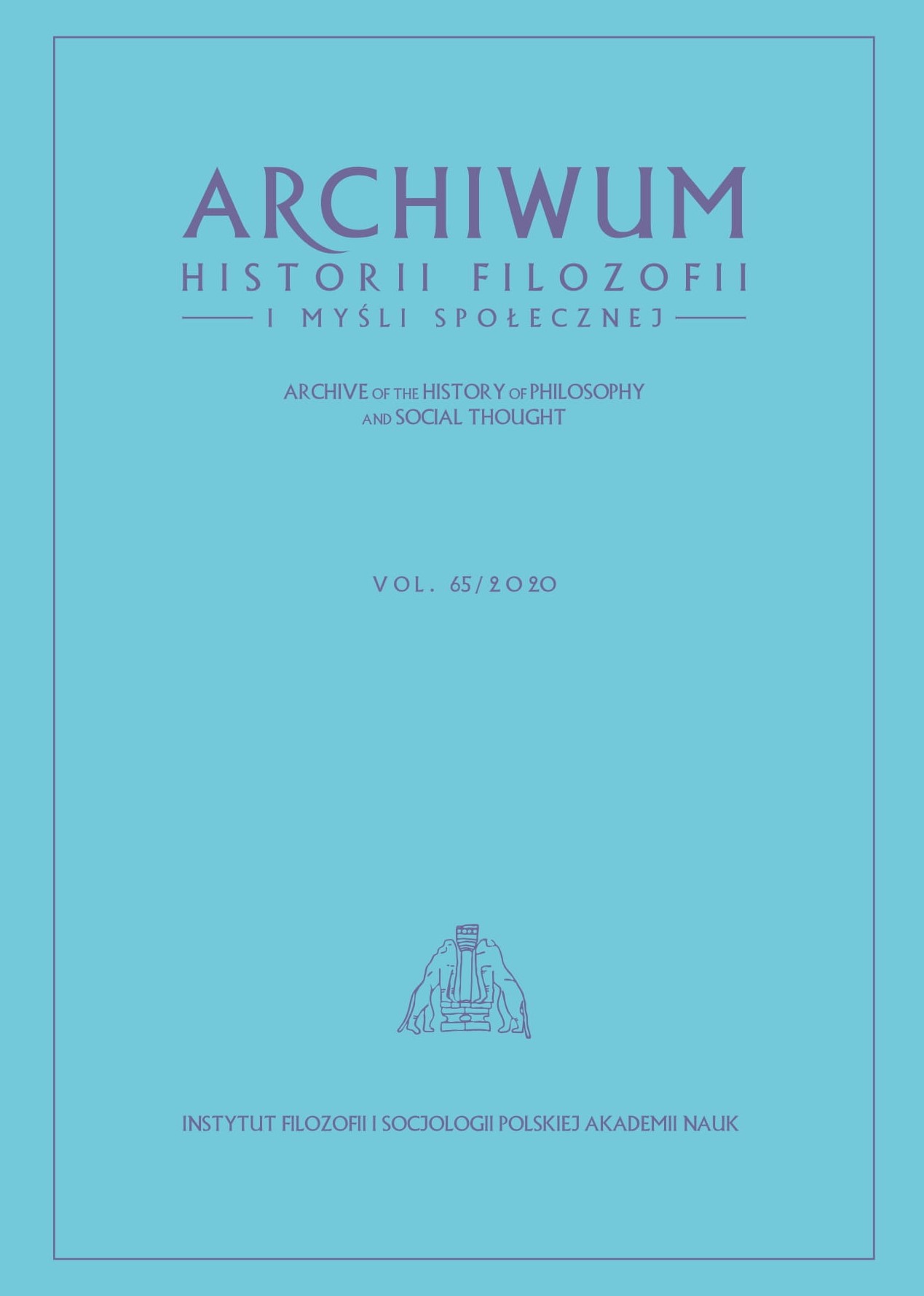Struktura hipostazy Umysłu (Nous) w Proklosa Theologia platonica V
The Structure of Nous-Hypostasis in Proclus’ Teologia platonica V
Author(s): Marcin KomorowskiSubject(s): Social Philosophy
Published by: Instytut Filozofii i Socjologii Polskiej Akademii Nauk
Keywords: neoplatonism ; Proclus; Theologia platonica; Nous; Demiurge; Plato’s Timaeus
Summary/Abstract: The purpose of this article is to present the concept of Nous in Proclus’s Teologiaplatonica V. It was noted that this philosopher distinguishes the divine imparticipable Nousand the nous within us. Th e former is an unmoved source of movement of the Soul whichparticipates in it. Furthermore, this Nous is the only one. It is the effi cient and fi nal cause ofall order and the object of desire for all beings and things. Proclus also distinguishes betweenthe Nous, who is Father and Demiurge, and numerous participable minds. He distinguishesbetween a noetic (intelligible) Nous and a noeric (intelligent/intellectual), that is an intellectiveone, which make up the structure of the one Nous of the Demiurge. It is rather passive (thenoetic), on the one hand, and active (intellective), actualizing, which is one that operates on its noetic content, on the other. The Nous is also characterized by two sorts of activity – theexternal and internal ones. The latter brings the Nous out of the potential state and enablesit to think, which has the character of intellectual seeing and contemplating. Th e Nous hasa mythological name and functions in the writings of Proclus under the name of Zeus.
Journal: Archiwum Historii Filozofii i Myśli Społecznej
- Issue Year: 65/2020
- Issue No: 65
- Page Range: 43-54
- Page Count: 12
- Language: Polish

